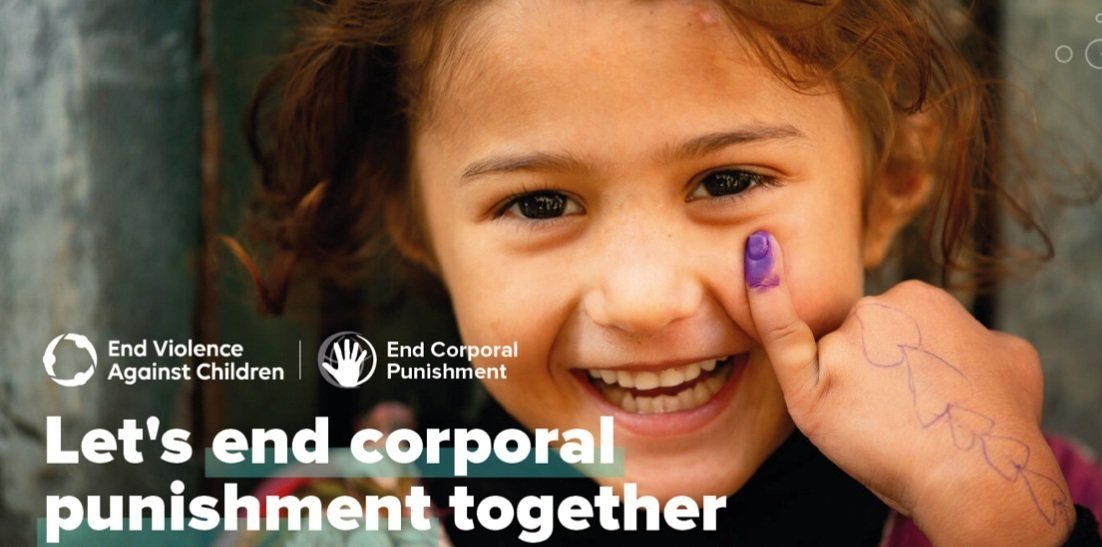
Ending corporal punishment in educational settings
Ensuring no child is afraid to learn
Can you learn when you are afraid? Can you experience the transformative power of education when your teacher beats you? How can you learn the skills for later employment if school is a dangerous place?
Violence stops children from learning. It causes physical and psychological harm, leads to lower educational achievement and causes school avoidance and drop-out.
Today 793 million school-age children, half of the global school-age children population, live in 63 countries - listed at the end of this page - where corporal punishment in school remains lawful in some or all educational settings..
As a network of parliamentarians committed to advancing. children’s right to education, we are concerned about the right of all children to learn in a safe, free of violence learning environment.
30 years after the adoption of the Convention on the Rights of the Child, we believe that prohibiting corporal punishment in law and eliminating it in practice in every country of the world and in all educational settings is an urgent priority.
An international plan of action to outlaw corporal punishment
A new report by the Coalition for Good Schools and End violence proposes seven key steps countries should take to end corporal punishment in schools:
Ensure teachers, parents and communities understand that corporal punishment is against the law through public engagement, education and communication campaigns
Engage the whole school and communities in promoting a non-violence culture
Provide training and support to staff
Establish confident and independent reporting procedures
Establish responses and sanctions to the ongoing use of violent punishment by school staff
Monitor compliance and effectiveness of the law
Celebrate progress and excellence in developing good schools and non-violent teaching.
Achieving universal prohibition of corporal punishment in educational settings
Corporal punishment is the most common form of violence against children worldwide. It includes any punishment in which physical force is used and intended to cause some degree of pain or discomfort, however light, as well as non-physical forms of punishment that are cruel and degrading.
Any corporal punishment violates children’s right to respect for their human dignity and physical integrity, and their rights to health, development, education and freedom from torture and other cruel, inhuman or degrading treatment or punishment. Its legality in the majority of states – unlike other forms of interpersonal violence – violates their right to equal protection under the law.
65 states around the world have today prohibited corporal punishment for children in all settings, and 136 have prohibited corporal punishment in educational settings.
This means that in 63 states corporal punishment remains lawful in some or all educational settings.
IPNEd calls on members of parliament in these states to initiate or support action, including legislation to prohibit corporal punishment in educational settings.
Below you can see if your country still allows corporal punishment in schools along with any immediate opportunities to accelerate law reform.
Law reform should underpin national strategies
Laws on their own will not be enough. To be effective, the prohibition of corporal punishment in schools requires a comprehensive range of measures to create a culture of teaching and learning that does not rely on violence. The passage of laws should therefore lay the ground for the implementation of national strategies which should include:
Widespread and sustained public education and accessible awareness-raising campaigns that clearly communicate the intent of the law.
Clear direction and training for teachers and other staff on the law, equipping them with alternative, positive and non-violent disciplinary strategies.
Independent reporting procedures, like child helplines, for children, staff and other adults, ensuring protection for those who report the use of corporal punishment.
A strategy to monitor the effectiveness of the law, and compliance with prohibition through regular public opinion surveys, including consultations with children.
Parliamentarians have an important role to play in monitoring the implementation of new laws and helping ensure that measures like the ones set out above have the funding and political support to be implemented effectively.
More information
More information on the case for ending corporal punishment in educational settings is available at:
If you would like support in initiating law reform to end violence in schools please contact the IPNEd Secretariat on info@ipned.org.









